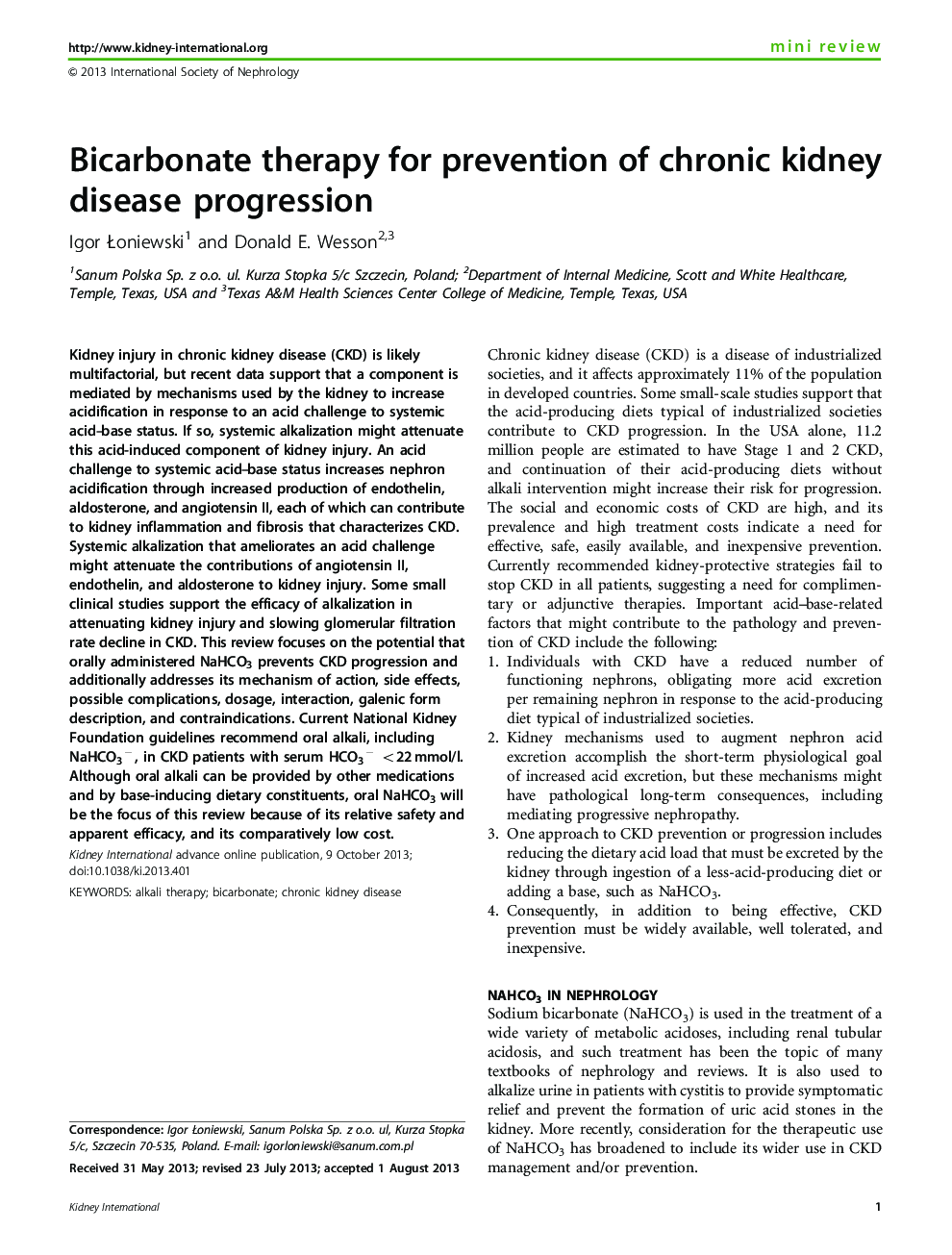| کد مقاله | کد نشریه | سال انتشار | مقاله انگلیسی | نسخه تمام متن |
|---|---|---|---|---|
| 6160819 | 1249353 | 2014 | 7 صفحه PDF | دانلود رایگان |
عنوان انگلیسی مقاله ISI
Bicarbonate therapy for prevention of chronic kidney disease progression
ترجمه فارسی عنوان
درمان بی کربنات برای جلوگیری از پیشرفت بیماری مزمن کلیه
دانلود مقاله + سفارش ترجمه
دانلود مقاله ISI انگلیسی
رایگان برای ایرانیان
کلمات کلیدی
درمان قلیایی، بی کربنات، بیماری مزمن کلیوی،
موضوعات مرتبط
علوم پزشکی و سلامت
پزشکی و دندانپزشکی
بیماریهای کلیوی
چکیده انگلیسی
Kidney injury in chronic kidney disease (CKD) is likely multifactorial, but recent data support that a component is mediated by mechanisms used by the kidney to increase acidification in response to an acid challenge to systemic acid-base status. If so, systemic alkalization might attenuate this acid-induced component of kidney injury. An acid challenge to systemic acid-base status increases nephron acidification through increased production of endothelin, aldosterone, and angiotensin II, each of which can contribute to kidney inflammation and fibrosis that characterizes CKD. Systemic alkalization that ameliorates an acid challenge might attenuate the contributions of angiotensin II, endothelin, and aldosterone to kidney injury. Some small clinical studies support the efficacy of alkalization in attenuating kidney injury and slowing glomerular filtration rate decline in CKD. This review focuses on the potential that orally administered NaHCO3 prevents CKD progression and additionally addresses its mechanism of action, side effects, possible complications, dosage, interaction, galenic form description, and contraindications. Current National Kidney Foundation guidelines recommend oral alkali, including NaHCO3-, in CKD patients with serum HCO3- <22Â mmol/l. Although oral alkali can be provided by other medications and by base-inducing dietary constituents, oral NaHCO3 will be the focus of this review because of its relative safety and apparent efficacy, and its comparatively low cost.
ناشر
Database: Elsevier - ScienceDirect (ساینس دایرکت)
Journal: Kidney International - Volume 85, Issue 3, March 2014, Pages 529-535
Journal: Kidney International - Volume 85, Issue 3, March 2014, Pages 529-535
نویسندگان
Igor Åoniewski, Donald E. Wesson,
